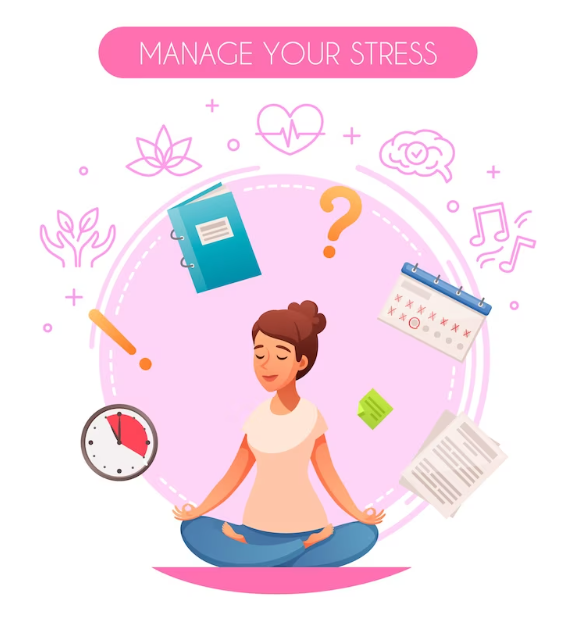-
Feed de notícias
- EXPLORAR
-
Páginas
-
Grupos
-
Eventos
-
Blogs
-
Marketplace
Mental Wellbeing Strategies to Manage Stress and Anxiety

There are a number of mental wellbeing strategies to manage stress and anxiety. These include relaxation techniques, exercise and good time management.
You can also get help from a GP or a mental health professional if these self-help strategies aren't working for you. They can help you identify and change the sources of your stress.
1. Exercise
Having a good exercise routine can really help you manage stress and anxiety. It will boost your energy, reduce your feelings of anxiety and increase your confidence.
It’s also really important to get quality sleep, which will help your mental health. This is something you should aim to do every night.
Mindfulness is a practice that can improve your mental health and wellbeing in many ways, from being more aware of your breath to focusing on the taste of food.
If you find yourself struggling with mental health issues, it’s important to get help from a mental health professional as soon as possible. They will be able to guide you through the different techniques you can use to help manage your stress and anxiety.
2. Sleep
Sleep is a state of rest that regulates everything from brain function to immune response and mood. It has been a mystery to scientists for centuries, but it plays a vital role in your body's health and well-being.
Studies show that getting enough quality sleep is one of the best ways to manage stress and anxiety. It helps regulate your emotions and allows the amygdala, which controls your fear reaction, to respond more adaptively.
While it is natural to feel stressed from time to time, chronic stress can be detrimental to your mental and physical health. It can trigger changes in the way you think and feel, and it may be difficult to overcome.
3. Nutrition
The nutrient-rich foods that you eat play an important role in your mental health. They can help you cope with stress, manage anxiety and improve your mood.
Vitamin C - Keep your adrenal glands healthy by including plenty of foods high in vitamin C. Examples include oranges, tomatoes, peppers and leafy greens.
Magnesium - This mineral can help to relax your muscles and reduce anxiety. It is particularly found in nuts, beans and lentils, whole grains and leafy greens.
Keeping your levels of the mood-boosting hormone serotonin in balance is also essential. A diet rich in complex carbohydrates can boost this hormone, such as whole grain breads and pastas, oats, brown rice and fruit.
4. Healthy Relationships
Keeping healthy relationships is one of the most important things you can do for your mental health. It improves your mood, reduces stress and anxiety, and makes you feel more connected to others.
A healthy relationship involves mutual respect, trust, and communication. It’s important to be honest and open about how you feel, and to listen to your partner without judgment or criticism. Fildena 100 and Vidalista 20 help in healthy relationship.
It’s also important to talk about your own feelings and problems, so that you can find ways to solve them together. Often, this is best done through face-to-face conversations, but it can also be helpful to discuss your concerns with a trusted friend or family member.
Relationships can be stressful, so it’s important to practice mindfulness and learn to acknowledge your emotions and physical responses in a healthy way. Having regular meditation sessions can help you to reframe stressful situations and avoid letting them overwhelm you or trigger unwanted negative thoughts or behaviors.
5. Mental Health
Good mental health includes emotions, thinking, communication, learning, resilience, hope and self-esteem. It also involves the ability to establish constructive relationships and cope with daily demands.
The World Health Organization defines mental health as the capacity to realize one’s abilities, cope with normal stress and work productively. Nevertheless, the concept of mental wellness is ambiguous and can be difficult to define in practice.
Some mental health strategies include cognitive techniques to help reduce anxiety. This involves reframing negative situations as positive and considering alternative outcomes.
- Art
- Causes
- Crafts
- Dance
- Drinks
- Film
- Fitness
- Food
- Jogos
- Gardening
- Health
- Início
- Literature
- Music
- Networking
- Outro
- Party
- Religion
- Shopping
- Sports
- Theater
- Wellness
